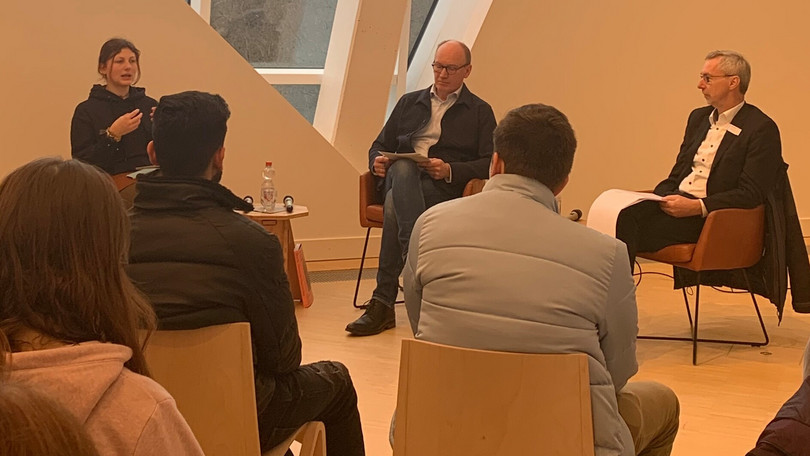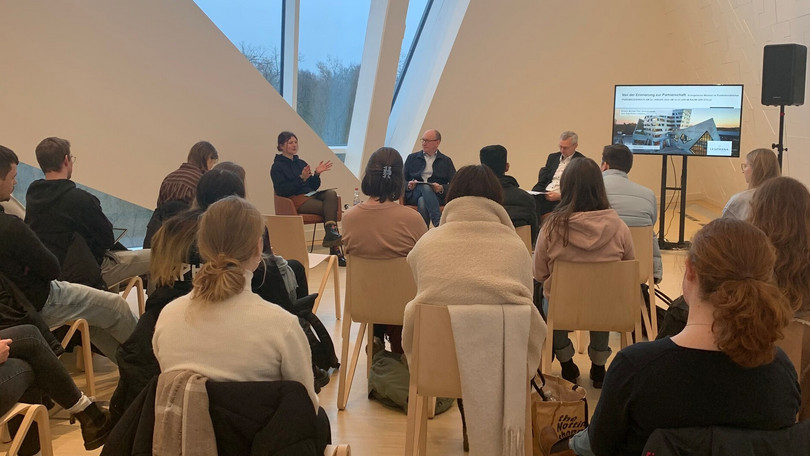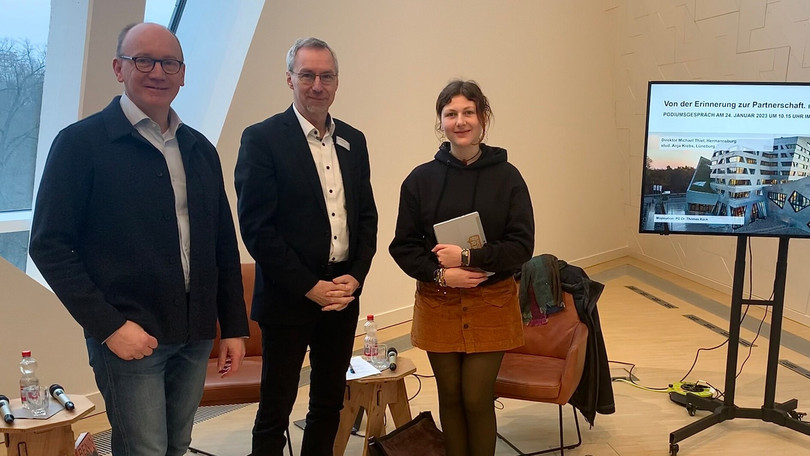Ethics in Conversation: Evangelical Mission in Postcolonialism
From memory to partnership
2023-01-31 How does the Protestant mission position itself in the current debate on decolonisation? That was the central question at the latest event in the series "Ethics in Conversation". PD Dr Thomas Kück from the Institute for Ethics and Theology moderated the public panel discussion with Mission Director Michael Thiel and student Anja Krebs in the Room of Silence in Leuphana's central building.
The cause is close. Missions to Africa and other continents also emanated from Herrmannsburg, a small heath town not far from Lüneburg. The mission was a pan-European phenomenon that also came to Germany from England via the Netherlands in the transition from the 18th to the 19th century. In many places, mission societies were founded that collected money to spread Christianity worldwide, distribute Bibles and send missionaries to Africa and other continents. Michael Thiel, director of the Protestant missionary organisation in Lower Saxony, describes the motive at the time: "We want to do something for the people", he says, schools and hospitals were established as well as villages with German names. Although the mission had a certain proximity to the simultaneous colonisation of Africa by European imperialism, it differed markedly in its methods and goals. The common historical context nevertheless challenges us today to self-critical reflection.
Today it is about remembering and partnership at eye level. The Protestant mission in Lower Saxony is currently involved in about 100 projects worldwide. This includes overcoming the traditional Eurocentric view of Africa. This top-down view from Europe to Africa is an aspect of colonial and mission history that should be overcome in the context of decolonisation: It was not Europe that knew what Africa needed, but Africa that formulated its expectations of Europe and its needs independently and, above all, on an equal footing. Thiel was supported in this by Anja Krebs, a student on the podium. Before her studies at Leuphana, she completed a voluntary period in Cameroon with the organisation "Weltwärts". It is important to reflect on one's own attitudes. "It is not us who know what is good and necessary for people from Africa, but the people themselves who contribute their needs to an equal process," said Krebs.
Is there still a powerful connection between mission and politics today? He could not give a general answer, said Michael Thiel, but for him it had become clear that the real power factor was money. Money was the biggest driver in global injustice, as he could tell from his own experience in the global South.
The audience asked whether "post-colonial" was the right term at all. If the term was meant to express that the colonial era was closed in that it no longer needed to be reflected upon, then it would be contradictory. Anja Krebs agreed with this. Listening to each other on an equal footing and perceiving each other's differences has become important for her in Cameroon. And she would like to see more of this in the future.



